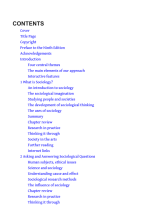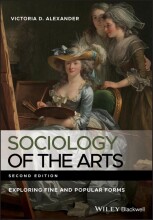Policy Perspectives - Oakley, K. (2006). Include us out—economic development and social policy in the creative industries
4 important questions on Policy Perspectives - Oakley, K. (2006). Include us out—economic development and social policy in the creative industries
According to Oakley (2006), policy written for supporting the creative industries during the late 1990s and early 2000s contains several inconsistencies.
What are the three main points she makes on this subject?
- Disconnected centralization.
- There is a disconnect between the recommendation of the national government and the local/regional governments.
- Tension in utilization.
- There is a tension between using the creative industries as:
- A method for economic growth.
- A method to adress inequality.
- Internal tensions.
- There were internal tensions within the then-ruling Labour Government between two camps:
- Neo-liberal "New Labour".
- Paternalistic "Old Labour".
Oakley (2006) talks about how creative industry policy in the UK changed when the governing Labour Party switched from the paternalistic "Old Labour" to the Neo-liber "New Labour".
Can you explain what about the party's ideology changed?
- The "Old Labour" gathered support from trade unions and pursued collective victories.
- Especially for the working class.
- New Labour focused on the creative individual or independent.
According to Oakley (2006), policy written for supporting the creative industries during the late 1990s and early 2000s contains several inconsistencies.
Can you explain what, according to Oakley (2006) the two main ramifications of these tensions and contradictions were?
- Under these contradictions, creative industry policy favours promoting individual creativity over addressing systematic inequality.
- Therefore, structural problems and inequalities in the creative sectors are individualized by this policy.
- Wider social issues are also outsourced to the creative industries.
- Higher grades + faster learning
- Never study anything twice
- 100% sure, 100% understanding
According to Oakley (2006) the neo-liberal "New Labour" party made some incorrect assumptions on which they based their creative industry policies. What are the three most important assumptions made by New Labour that are incorrect according to Oakley (2006)?
- Promoting entrepreneurs would help to reinvigorate and remake local places hit by deindustrialization.
- Promoting entrepreneurs would simply address inequalities, due to the meritocratic nature of entrepreneurialism.
- Through the outsourcing of broader social issues to the creative industries, local areas would be helped in ways the post-industrial economy had not.
The question on the page originate from the summary of the following study material:
- A unique study and practice tool
- Never study anything twice again
- Get the grades you hope for
- 100% sure, 100% understanding































